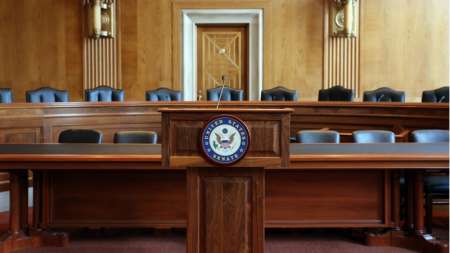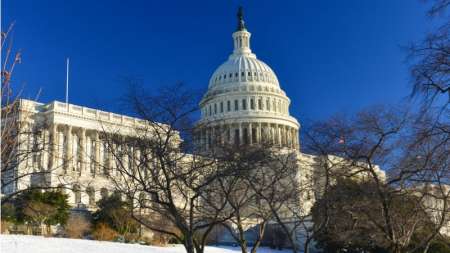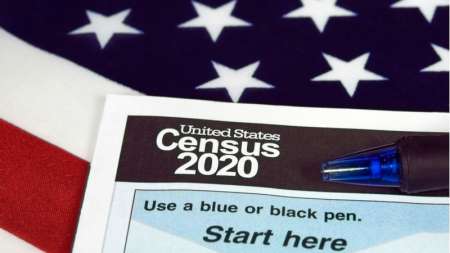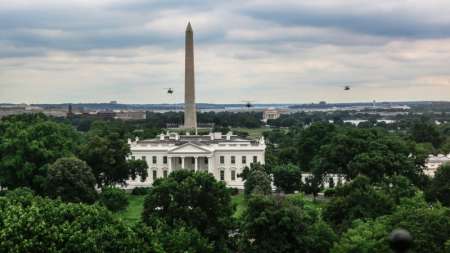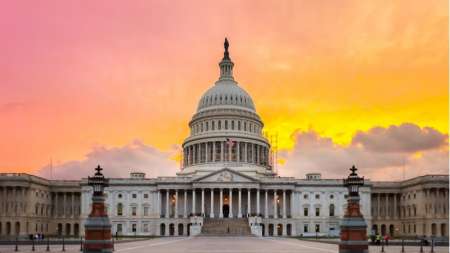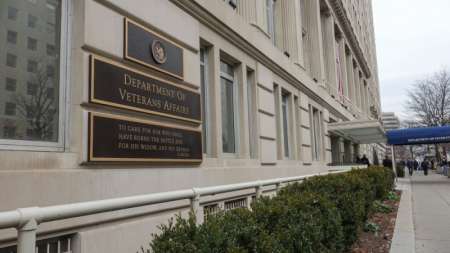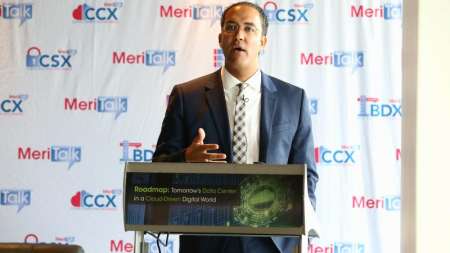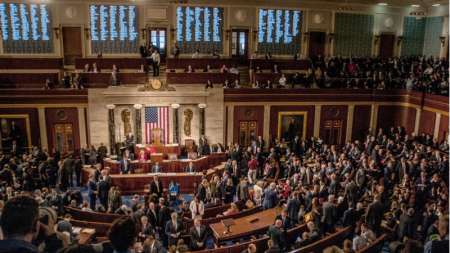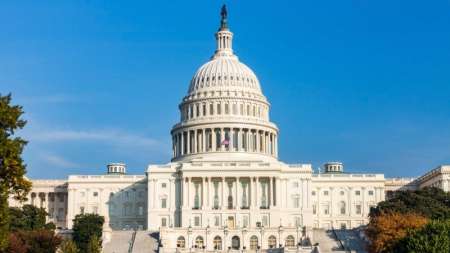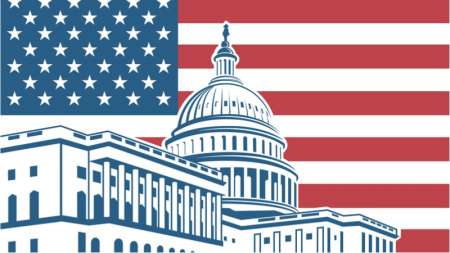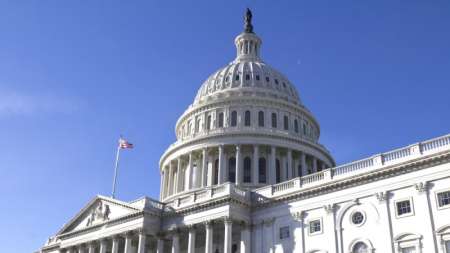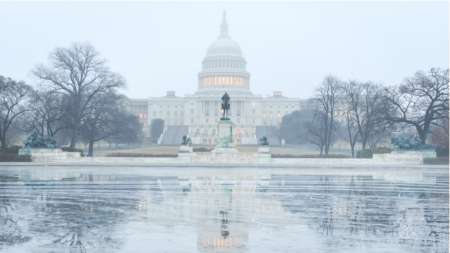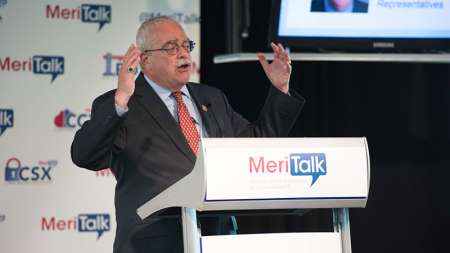Several senators took a skeptical view today over the Department of Veterans Affairs’ (VA’s) Electronic Health Records Modernization effort (EHRM), raising questions on the need for better IT infrastructure, scheduling systems, and leadership structure. […]
Rep. Frank Pallone, D-N.J., chairman of the House Energy and Commerce Committee, on Monday reintroduced a bill to prevent “abusive” robocall practices and to give the Federal Communications Commission (FCC) increased authority to fight robocalls. […]
Senate Democrats on Monday introduced a bill that would prevent President Trump from using money already appropriated for the U.S. military to help build a border wall in the event that the President declares a national emergency to accomplish that purpose. […]
In a letter on Friday, Sen. Mike Enzi, R-Wyo., questioned Steven Dillingham, director of the U.S. Census Bureau, over how nearly $5 billion in IT costs are being managed by the Bureau. His concerns come as IT costs grew by $1.56 billion between October 2015 and December 2017. […]
If recent events are any indication, we could be seeing big changes to agency cloud migration plans in 2019. The Federal government could be rethinking its role in owning and operating its own data centers, strongly questioning whether that is a job best left to government employees. […]
Sen. Mark Warner, D-Va., on Friday reintroduced the Modernizing the Trusted Workforce for the 21st Century Act, which would overhaul the Federal government’s security clearance process and tackle the government’s backlog of pending security clearance investigations. […]
President Trump hinted today at using emergency powers to begin construction of a wall at the U.S.-Mexico border, and suggested that an announcement to that effect may be part of his State of the Union speech next Tuesday. […]
Sen. Pat Roberts, R-Kan., is reintroducing the Kelsey Smith Act this week, a bill that would have wireless carriers ping the mobile devices of subscribers believed to be in danger and send their location information to law enforcement. […]
Representative Susie Lee, D-Nev., will be taking over the congressional oversight of Veterans Affairs (VA) Department’s electronic health record modernizing by leading the Technology Modernization subcommittee of the House Committee on Veterans Affairs. […]
House Speaker Nancy Pelosi, D-Calif., on Tuesday released the Democratic roster for the Select Committee on the Modernization of Congress, which was created as part of a House Rules package adopted earlier this month when Democratic leadership took over in the House. Minority Leader Kevin McCarthy, R-Calif., has not yet named the committee’s Republican members. […]
The 17 members of Congress whose job it is to try to avert another partial Federal government shutdown held their first official meeting today, and two of the Democratic House members that are part of the House-Senate conference committee created to resolve differences on border security issues described the initial negotiating session as both cordial and constructive. […]
Rep. Will Hurd, R-Texas, who has been an advocate for Federal IT policies on Capitol Hill, announced that he will be a member of the House Appropriations Subcommittee on Military Construction and Veterans Affairs, and the House Appropriations Subcommittee on Transportation, Housing and Urban Development. […]
The House voted today to approve a 2.6 percent pay increase for civilian Federal employees. The legislation sponsored by Rep. Gerry Connolly, D-Va., cleared the House on a vote of 259-161, with all 230 House Democrats being joined by 29 Republicans voting for the measure. […]
The House on Tuesday passed H.R. 769, the Counterterrorism Advisory Board Act of 2019, which would establish a board at the Department of Homeland Security (DHS) to coordinate and integrate departmental intelligence, activities, and policy related to counterterrorism. […]
The House Oversight and Reform Committee announced the leadership and membership of its subcommittees on Tuesday, with Rep. Gerry Connolly, D-Va., as chairman of the Subcommittee on Government Operations, which will handle Federal IT oversight duties. Rep. Mark Meadows, R-N.C., will service as the subcommittee’s ranking member. […]
A day after the Federal government fully reopened and less than three weeks after it faces another potential funding crisis, a group of Senate Democrats has been pushing to get back pay to low-wage government contractors who missed paychecks during the partial lapse in appropriations. […]
The House Homeland Security Committee announced today that Rep. Cedric Richmond, D-La., will chair the Subcommittee on Cybersecurity, Infrastructure Protection, and Innovation. […]
Multiple tech-related issues including cybersecurity, social media manipulation, and intellectual property theft took center stage today at a Senate Intelligence Committee hearing featuring six U.S. intelligence organization chiefs fielding senators’ questions about threats to the country from adversaries who they said are becoming more dangerous as they better understand and use technology. […]
During the State of the Net 2019 Conference, cybersecurity experts zeroed in on how the shutdown impacted not only the United States’ cybersecurity posture but also the Federal government’s cybersecurity workforce. […]
A group of Democratic senators went public with a letter to Gen. Paul Nakasone, head of U.S. Cyber Command and the National Security Agency, and Kirstjen Nielsen, secretary of the Department of Homeland Security (DHS), asking them to answer questions about the partial Federal government shutdown’s effect on cybersecurity. […]
Rep. Bob Latta, R-Ohio, ranking member of the House Energy and Commerce Committee’s subcommittee on Communications and Technology, delivered a wide-ranging survey of tech issues in the panel’s gunsights for this year and beyond during a keynote speech at the State of the Net 2019 conference today, and generally came down on the lighter side of the regulatory spectrum. […]
The post-government shutdown thaw produced its first green shoots today, as Federal employees returned to work and House Speaker Nancy Pelosi, D-Calif., invited President Trump to deliver the State of the Union address in the House chambers on Feb. 5. […]
The Congressional Budget Office (CBO) today estimated the cost of the partial Federal government shutdown–which began Dec. 22 and ended Jan. 25–at $11 billion of reduced U.S. gross domestic product (GDP), although most of that amount will be recoverable in future periods. […]
Senate Democrats are circulating among their offices text of a letter they may send to senior Federal cybersecurity leaders questioning the impact of the partial Federal government shutdown on the security of government networks, MeriTalk has learned. […]
The House and Senate late today voted to fully reopen the Federal government until Feb. 15, ending a 35-day shutdown that began before Christmas. […]
Reps. Gerry Connolly, D-Va., and Steny Hoyer, D-Md., introduced the Federal Civilian Workforce Pay Raise Fairness Act of 2019. The legislation, introduced today, would bring this year’s pay increase for civilian Federal employees in line with the raise given to members of the military. Currently, under President Trump’s pay freeze, civilian employees will see no pay raise, while members of the military received a 2.6 pay increase for the 2018 calendar year. […]
The chairman and ranking member of the House Committee on Foreign Affairs have introduced H.R. 739, the Cyber Diplomacy Act of 2019, which would establish an Ambassador for Cyberspace in the State Department. […]
A group of 23 Democratic and independent senators have announced their support for the Fair Compensation for Low-Wage Contractor Employees Act, which was introduced Jan. 16 and would provide back pay up to $600 per paycheck for Federal contractors who were furloughed or had their hours reduced due to the partial government shutdown. […]
On the heels of the Senate voting down both competing Republican and Democrat funding bills to reopen the partially-closed Federal government, President Trump today suggested that he might be willing to accept a smaller “down payment” on funding the southern border wall. […]
With the 116th session of Congress now well underway, committee and subcommittee rosters are being finalized. For those in the Fed IT world, there are a few committee assignments to pay attention to. […]

